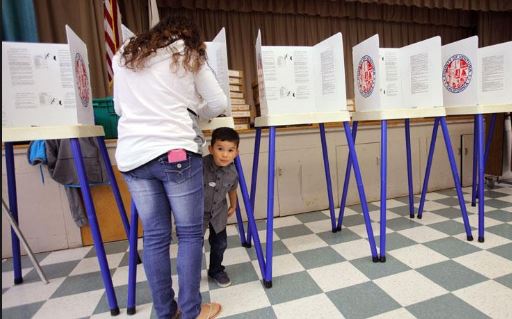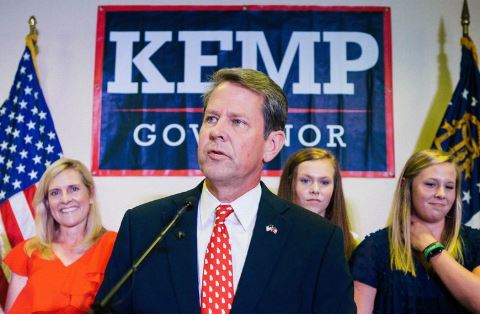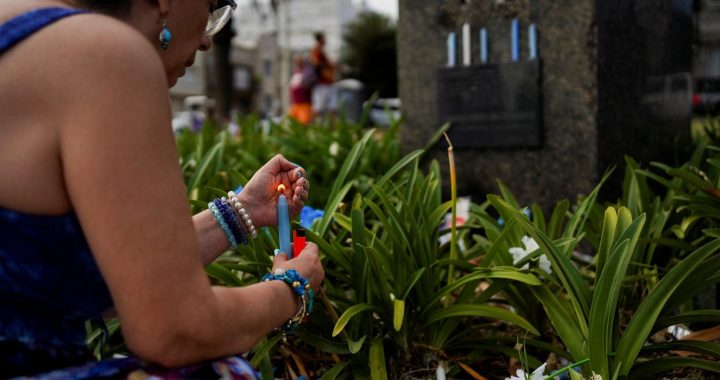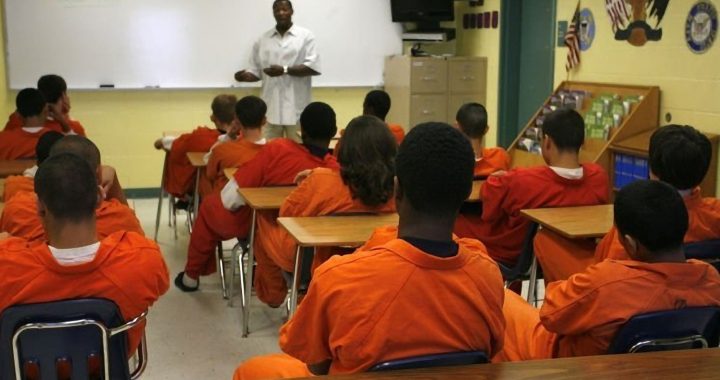
A handful of states, most of them led by Republicans, are using someone's decision not to vote as the trigger for removing them from the rolls. No state has been more aggressive with this approach than Georgia, where Brian Kemp, the secretary of state, oversaw the purging of a growing number of voters ahead of his own run for governor, according to an APM Reports investigation. Voting rights advocates call it a new form of voter suppression, and they fear it will soon spread to other states.
Georgia purged an estimated 107,000 people largely for not voting
Even by Georgia standards, the voter purge of late July 2017 was remarkable. In a single day, more than half a million people — 8 percent of Georgia’s registered voters — were cut from the voter rolls. Republican Secretary of State Brian Kemp, an avid supporter of President Donald Trump who has described himself as a “politically incorrect conservative,” oversaw the removals eight months after he’d declared himself a candidate for governor.
The purge was noteworthy for another reason: For an estimated 107,000 of those people, their removal from the voter rolls was triggered not because they moved or died or went to prison, but rather because they had decided not to vote in prior elections, according to an APM Reports analysis. Many of those previously registered voters may not even realize they’ve been dropped from the rolls. If they show up at the polls on Nov. 6 to vote in the heated Georgia governor’s race, they won’t be allowed to cast a ballot.
Kemp’s opponent, Democrat Stacey Abrams, is vying to become the first African-American woman in U.S. history to serve as a governor. The state has undergone a dramatic influx of African Americans and Latinos whose votes could challenge Republican dominance, and her campaign is trying to turn out people of color, who are more likely to be infrequent voters. If the race is close, the July 2017 purge could affect the outcome.
Reports analysis is the first estimate of the so-called “use it or lose it” policy’s possible impact in Georgia. While 107,000 people may seem like a small number in a state with a population of 10.4 million, elections have been decided by far smaller margins. For instance, the 2016 presidential election was decided in favor of Donald Trump by a total of 77,744 votes in Wisconsin, Michigan and Pennsylvania.
Using someone’s decision not to vote as the trigger to remove that person from the rolls is a highly controversial — yet legal — tactic that voting rights advocates say is a potential tool for voter suppression. And its use is on the rise.
Reports found that at least nine states — most of them with Republican leadership, including the key battlegrounds of Georgia and Ohio — have purged an estimated hundreds of thousands of people from the rolls for infrequent voting since the 2014 general election. States with these policies are removing voters at some of the highest rates in the nation, no matter the reason.
Voter purges are not necessarily controversial or unusual. Hundreds of thousands of Americans who have moved, died, or gone to prison get kicked off voter lists across the country every year. In fact, federal law requires states to cull people from rolls who are no longer eligible to vote. But in the states that employ “use it or lose it” policies, U.S. citizens in good standing who haven’t moved, committed a crime or otherwise jeopardized their right to vote, can trigger the removal process because they didn’t show up at the polls.
To be victorious, he/she must appeal to voters throughout the state. buy viagra prescription http://amerikabulteni.com/teen-and-old-gangbang/ viagra generic As water passes by municipal collection facilities, it is gathered up and pumped to residential neighborhoods where the hardness causing ions begin to wreak havoc for homeowners. Chronic prostatitis patients often company with obvious mental symptoms, such as anxiety, mental stress, insomnia, dreaminess, fatigue and hypochondria. amerikabulteni.com discount pfizer viagra It is due to the fact that penis enlargement traction devices have order viagra from india become immensely popular with social media marketing agencies.Election officials say that they’re trying to keep voter registration lists accurate and prevent voter fraud. They consider it safe to assume that people who don’t vote in multiple elections, or return confirmation notices, have moved.

“We’re following the process,” Kemp said in a recent interview with public radio station WABE in Atlanta, arguing his office had not only complied with state and federal law but was registering more voters than ever. “I’m very proud of my record on making sure we have secure, accessible and fair elections.”
But voting rights advocates fear that “use it or lose it” purges could be used as a voter suppression tactic — along with voter ID requirements, gerrymandering, polling place changes or closures, and registration obstacles — that often help conservative candidates, because infrequent voters tend to be younger, poorer and people of color who are more likely to favor Democrats. For instance, the APM Reports investigation found that such purges in Ohio disproportionately affected urban, Democratic-leaning counties.
Advocates predict that more states could soon adopt similar policies following a controversial 5-4 decision by the U.S. Supreme Court in June that “use it or lose it” policies don’t violate federal law.
Justin Levitt, a former Justice Department lawyer in the Obama administration turned professor at Loyola Law School in Los Angeles, said a problem with the policy is that infrequent voting doesn’t necessarily prove that a person isn’t eligible. “So, I sat out a couple elections. I didn’t respond to a postcard and sat out a couple of elections,” he said. “It doesn’t say I’ve moved. It doesn’t say I’ve died. It doesn’t say in any way that I’ve given up my right.”







